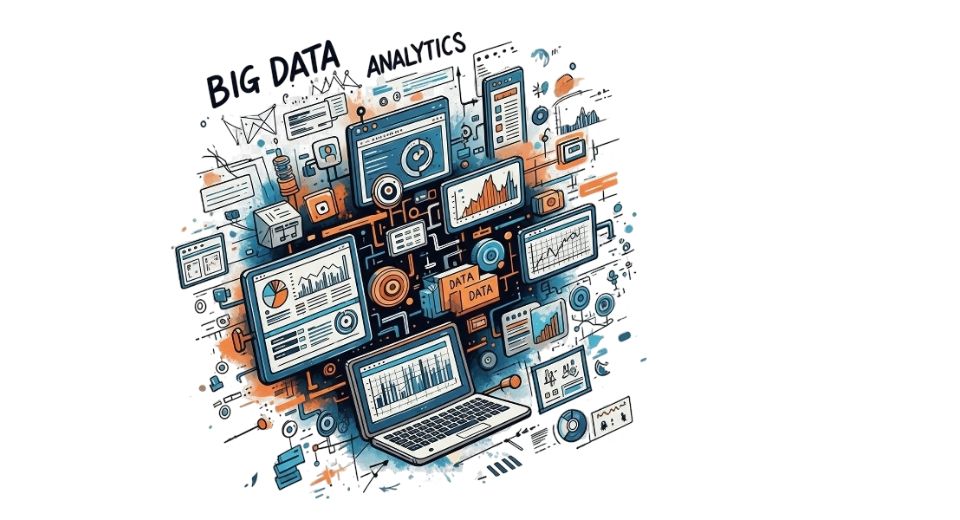
Jul 02, 2025

The recent research on Global Big Data Analytics Market by Metastat Insight presents an in-depth insight into the changes, anticipations, and widespread conditions of the industry. Instead of repeating familiar tropes or showing tired descriptions, this investigation has a sensitive perspective on how digital infrastructures within various industries are constructing the broader data-driven environment. With growing need for smart decision-making and strategic vision, the market in question is slowly becoming a field of focused development and investment not in response to trend, per se, but rather as a recognition of necessity industry-wide.
When considering the lines of this sector, what is certain is that the effects of data flows clearly exceed even its historic parameters. Instead of existing as a single discipline of practice or study, it overlaps with operations, finance, healthcare, energy, transportation, and various governmental systems. These overlaps give rise to a dynamic that is not controlled by size or speed but by the context-specific requirements imposed upon information and how organizations take advantage of it in the moment. The Metastat Insight report reveals that organizations are no longer merely storing or reading data they are starting to contextualize and refine it for use that impacts immediate performance and long-term flexibility.
The implications go beyond technology advances or software capabilities. What is arising is an organizational behavior and enterprise strategy structure shift. Not only are businesses restructuring their own internal mechanisms to mirror the rising level of sophistication in data processing, but also they are positioning their external arrangements among vendors, customers, and authorities to mirror the heightened complexity of dealing with enormous streams of digital input. This is not a trend driven by ambition; it is a sign of a greater understanding that actionable information must be proactive. It needs to be responsive, timely, and specially attuned to the subtlety of individual operating environments.
Studies indicate that companies today demonstrate a high level of intentionality in how they address information. No longer are they satisfied with broad generalities, there is a keen emphasis placed on relevancy and precision. The context under which these systems exist is not static; it changes according to social, political, and economic factors. Thus, the paradigms used to form conclusions from such information must adapt with equal agility. Consequently, most businesses are turning to multi-layered platforms that provide flexibility instead of stiffness. They are abandoning blanket-fits-all in favor of systems that reflect their strategic aspirations and operational pace.
The other aspect researched by Metastat Insight's report exists in the implications for workforce and talent. The Global Big Data Analytics Market is not just about software and systems it increasingly involves how individuals interface with digital tools. There is increasing need for experts who don't just know code or algorithms, but can convert statistical output into actionable information that informs decision-makers. The focus has shifted from raw analysis to depth of interpretation. These changes have ripple effects across organizational hierarchies, reshaping roles, team structures, and even learning priorities in workforce development.
In addition, the report identifies an emergent trend: the convergence of data into integrated environments that enable interoperability. Instead of sequestering information in departmental silos, increasing numbers of organizations are looking for environments where cross-functional teams can share the same datasets using customized lenses. This strategy enables not only operational synchronization but also innovation by ensuring that various units are using a common language of performance measures and results. That being said, the road to realizing such unity is fraught with obstacles. Not only does it take infrastructure redesign, it necessitates a cultural reset around data-sharing ethics and transparency.
The discussion also happens with regards to data governance. Regulatory sensitivity is paramount to most organizational issues, particularly when conducting business across borders with different legal requirements. The report illustrates the extent to which compliance is not just a survival tactic but a thought-through strategy. Organizations that view regulatory compliance as part of their data DNA tend to be more responsive and respected by stakeholders. This is an increasing recognition that transparency, traceability, and auditability are not limitations they are capabilities.
Finally, the conclusions drawn in the Global Big Data Analytics Market report by Metastat Insight indicate that the terrain is shifting from one of growth towards one of optimization. Businesses are retreating to consider not only how much data they can process, but whether they can do something productive with what they already have. The story is leaving volume behind and heading towards value where the measure of success is in effect, and not input.
As the market continues to mature, its destiny will be determined by individuals who value clarity over complexity and relevance over redundancy. Organizations that integrate data into their core belief systems, and not as a technical add-on, will be well suited to change and prosper. In conclusion, the holistic view presented in the Metastat Insight report on the Global Big Data Analytics Market is not only an overview, but a window with which to examine the path to which contemporary businesses are trending more integrated, more purposeful, and more sensitive to the strategic aspect of data.
Drop us an email at:
Call us on:
+1 214 613 5758
+91 73850 57479